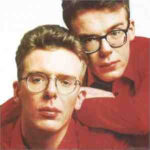As Mother’s Day approaches, our thoughts naturally turn to the incredible women who have shaped our lives. It feels like just yesterday we were celebrating the winter holidays, and now we’re preparing to honor mothers everywhere. With my own mother and my husband’s mother facing health challenges, Mother’s Day carries an even deeper significance this year. In this spirit of appreciation, let’s delve into the world of the Mother Song, focusing on a timeless classic that perfectly encapsulates the love and admiration we hold for our moms.
When we talk about the quintessential mother song, “M-O-T-H-E-R” immediately comes to mind. Written in 1915, with music by Theodore Morse and lyrics by Howard Johnson, this piece stands as a foundational tribute to mothers across the globe. Its enduring popularity and sentimental melody have cemented its place as a standard against which many other songs about mothers are measured. From its debut to today, “M-O-T-H-E-R” has been interpreted and recorded by countless artists in diverse musical styles, proving its universal appeal and timeless message. Interestingly, much like “Danny Boy,” this beloved mother song has also found a home in the hearts of Irish tenors and become a cherished part of the traditional Irish song repertoire, further showcasing its broad cultural impact.
To truly appreciate the sentiment behind this classic mother song, let’s listen to a rendition by the legendary Burl Ives, famously known as the voice of Rudolph the Red-Nosed Reindeer. His warm and comforting voice, accompanied by the Kings Men, brings a special touch to “M-O-T-H-E-R”:
[youtube https://www.youtube.com/watch?v=Rp7zxZMFcqU?rel=0&w=560&h=315]
For those who couldn’t listen, let’s explore the heartfelt lyrics that make this mother song so resonant:
I’ve been around the world, you bet, but never went to school
Hard knocks are all I seem to get, perhaps I’ve been a fool;
But still, some educated folks, supposed to be so swell,
Would fail if they were called upon a simple word to spell.
Now if you’d like to put me to the test,
There’s one dear name that I can spell the best!“M” is for the million things she gave me
“O” means only that she’s growing old
“T” is for the tears she shed to save me
“H” is for her heart of purest gold
“E” is for her eyes with love-light shining
“R” means right and right she’ll always be
Put them all together they spell MOTHER, a word that means the world to me.When I was but a baby, long before I learned to walk,
While lying in my cradle, I would try my best to talk;
It wasn’t long before I spoke and all the neighbors heard,
My folks were very proud of me for “Mother” was the word.
Although I’ll never lay a claim to fame,
I’m satisfied that I can spell the name:“M” is for the mercy she possesses
“O” means that I owe her all I own
“T” is for her tender, sweet caresses
“H” is for her hands that made a home
“E” means ev’rything she’s done to help me
“R” means real and regular, you see
Put them all together they spell MOTHER, a word that means the world to me.
These lyrics, while seemingly simple, are profoundly touching. They break down the word “MOTHER” into individual attributes, each line revealing a different facet of a mother’s love and sacrifice. From the countless gifts and selfless acts (“million things she gave me”) to the enduring strength and moral compass (“right and right she’ll always be”), the song paints a vivid picture of maternal devotion. The repetition of “MOTHER, a word that means the world to me” reinforces the central theme: the immeasurable value of a mother’s presence in our lives. This structure makes it a perfect sentimental song for expressing deep emotions.
While some might consider this classic mother song to be old-fashioned or overly sentimental, it’s precisely this sincerity that gives it lasting appeal. In the early 20th century, honoring mothers was deeply ingrained in culture, reflected in numerous songs and poems celebrating their virtues. “M-O-T-H-E-R” is a beautiful example of this era, a time when expressing heartfelt appreciation for family was a common and cherished practice.
In contemporary times, while the landscape of popular music has evolved, the sentiment behind songs about mothers remains timeless. Although perhaps not as many overtly sentimental mother songs dominate the charts today, the underlying appreciation for mothers is ever-present. This Mother’s Day, as we reflect on the contributions of mothers, let us not only cherish the modern expressions of love but also revisit and appreciate the classics like “M-O-T-H-E-R”. Let’s take a moment to raise a glass, offer a warm embrace, and express our heartfelt gratitude to our mothers for their lifetime of unwavering love and support. Playing a mother song like “M-O-T-H-E-R” can be a beautiful way to convey these emotions.
For those interested in learning more about the history of this special day, you can visit https://en.wikipedia.org/wiki/Mother%27s_Day.
And to further explore the theme of gratitude, which is so central to Mother’s Day, you might find my previous post insightful: https://singingvoicesuccess.com/gratitude-it-helps-your-singing-and-your-life/

